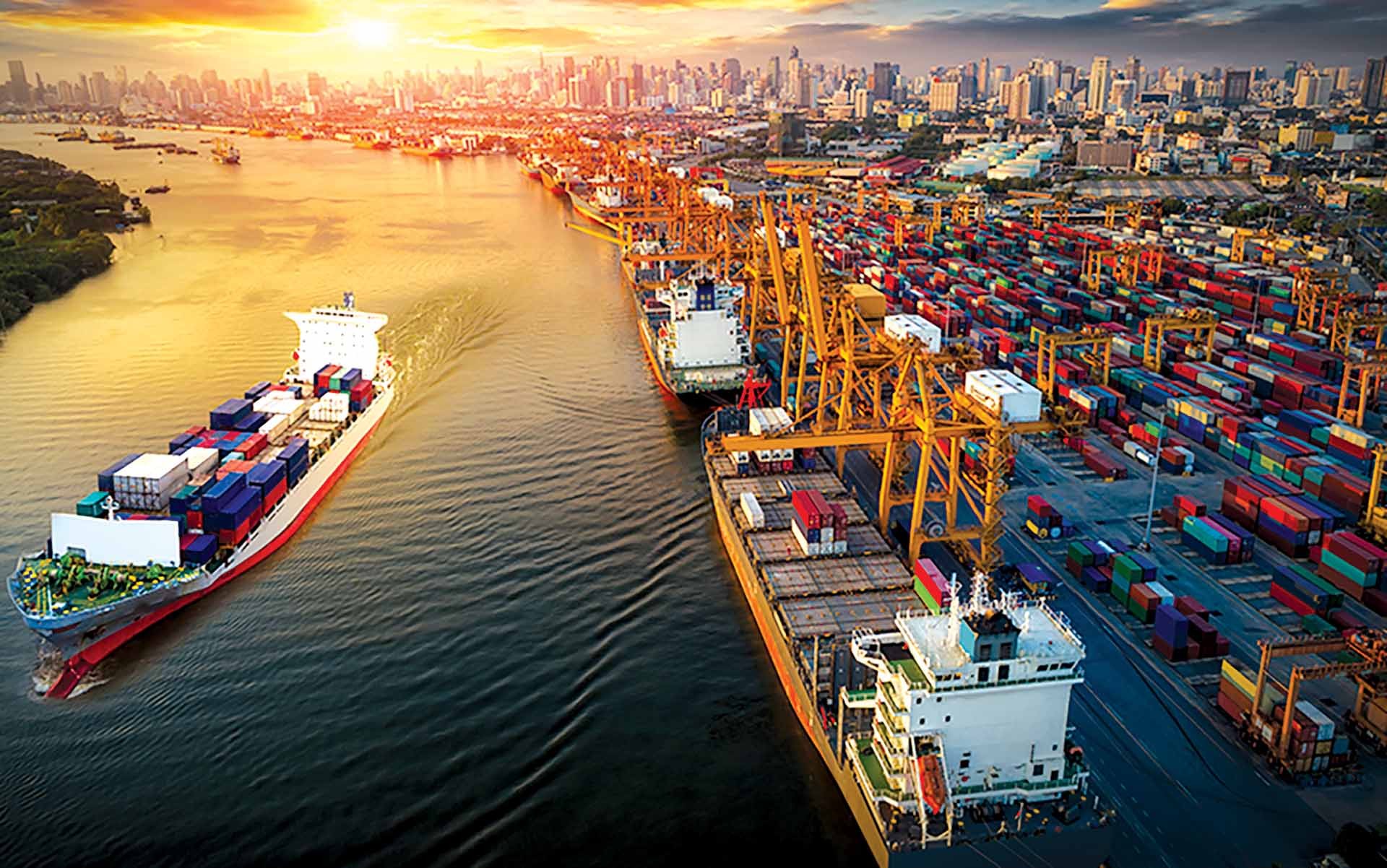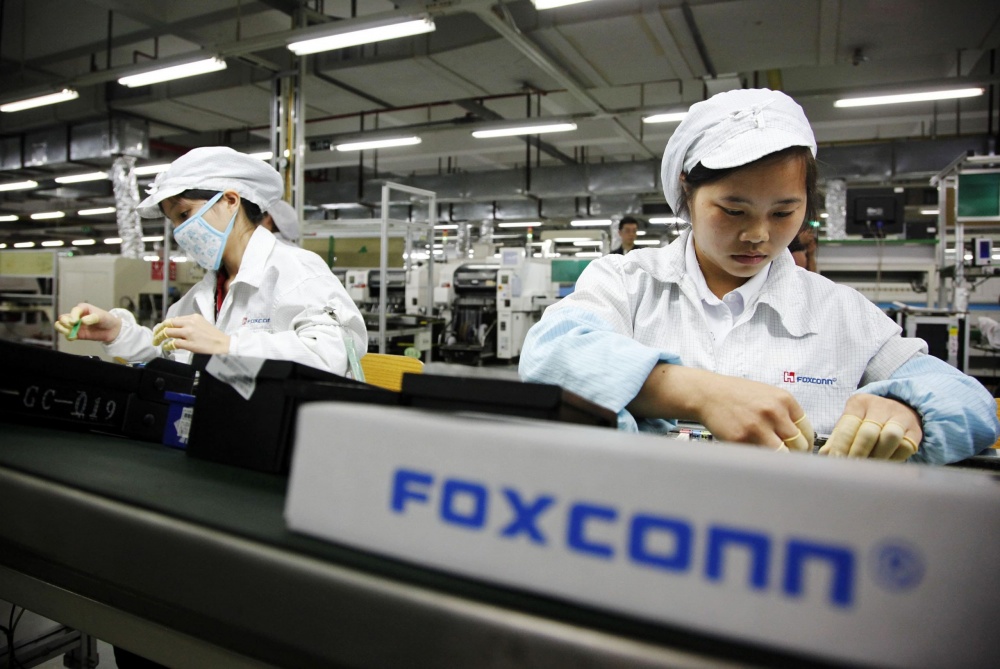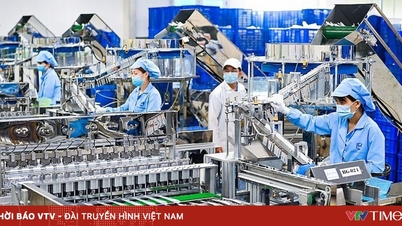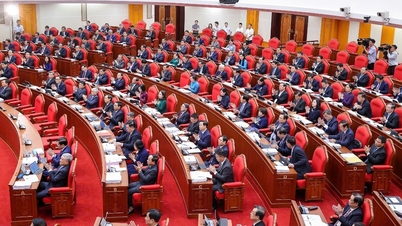 |
| Vietnam is emerging as an important link in the global supply chain. (Source: Industry and Trade Newspaper) |
Unchanging appeal
The severe outbreak of Covid-19 over the past three years has brought about major changes in global supply chains.
The unprecedented challenges have created serious disruptions, interrupting supply chains. This has caused significant economic losses for all countries, including Vietnam. However, this unexpected upheaval has also created both challenges and opportunities for the world , including a fresher, more flexible, and sustainable perspective on global supply chains.
As the effects of the contraction of global trade become apparent, multinational corporations face shortages of materials and a sharp decline in consumer demand. Meanwhile, businesses, individuals, and even government agencies are struggling to procure basic goods and products.
Driven by the urgent need to mitigate risks, global businesses have shifted towards diversifying their supply chains, rather than relying on a single source as before. This shift is seen as creating significant opportunities for manufacturing hubs like Vietnam, India, and Mexico.
Not immune to negative impacts, Vietnam's supply chain also experienced a crisis due to disruptions. However, this did not diminish Vietnam's role in the global supply chain.
Prior to the pandemic, Vietnam was one of the important manufacturing hubs in the global supply chain, particularly in the textile, electronics chip, and automotive sectors.
During and after the pandemic, Vietnam's role in supply chains and manufacturing has become increasingly important. Despite numerous challenges, investors have maintained their confidence in Vietnam's development and continue to choose it as a long-term investment market for expanding production. In particular, foreign direct investment (FDI) in the industrial and manufacturing sectors has steadily increased, creating many opportunities for Vietnam to strengthen its participation in global supply chains.
Concrete evidence of this is the increasingly evident wave of investment from multinational corporations from leading global economies, gradually making Vietnam an important location in the global supply chain. The first significant step was the investment by Samsung (South Korea) with four production facilities, contributing approximately 30% to the Group's total revenue. At the end of 2022, Samsung officially inaugurated its Research and Development (R&D) Center in Hanoi, with the ambition of developing it into a strategic base for large-scale research and development.
Another notable development is the increasing investment and business activities of leading American companies such as Apple, Intel, Ford, General Electric, Pepsi, Coca-Cola, Nike, Microsoft, Citi Group, and P&G in Vietnam. Significantly, Vietnam is not only a major supplier of textiles and footwear to the world's leading markets, but the trend of diversifying production sources has made it a potential alternative location. Many large American companies like Google, Microsoft, and Apple are increasingly shifting their production to Vietnam.
In a report, the Australia & New Zealand Banking Group stated: “The pandemic has not altered Vietnam’s attractiveness as a manufacturing hub, and it also has ample room for flexibility to boost economic recovery.”
 |
| Foxconn, a manufacturing partner for Apple, has decided to invest a total of $100 million in a project at the WHA Industrial Park in Nghe An province. (Source: Reuters) |
A crucial link
In reality, the challenge of sustainable participation in global supply chains has become more urgent as global geopolitical tensions and the Covid-19 pandemic have had significant impacts on the Vietnamese economy, especially in the supply chain sector.
According to the latest analysis by business transformation consulting firm TMX Global, compared to other economies in the region, Vietnam has experienced the fastest growth in the past 25 years and has performed very well in the post-pandemic period. However, a significant number of businesses have been negatively impacted by supply chain disruptions. Overall, these disruptions have led to decreased revenue for businesses, particularly those in the textile and electronics industries.
Furthermore, while Vietnam benefited from manufacturers and businesses relocating their factories from China last year, there are also signs of slowing export growth. This is happening against a backdrop of declining global demand, making it more important than ever for Vietnam to strengthen its supply chain capabilities to better withstand economic pressures.
Therefore, the need to enhance Vietnam's ability to participate deeply in global supply chains is urgently needed to maximize opportunities to make Vietnam one of the world's manufacturing hubs. To realize these goals, strong, leading enterprises are required to connect with other businesses, becoming satellite companies participating in global supply chains.
Another fundamental element in building a robust supply chain for the future is the digitalization of the buyer-supplier relationship. By effectively leveraging AI (Artificial Intelligence) and IoT (Internet of Things) technologies, supply chains can quickly pivot to alternative suppliers when disruptions occur. Building smart and time-saving supply chains is key to helping global trade weather future challenges.
Vietnam is increasingly integrating deeply into the global production chain. The growing importance of Vietnamese businesses in the world's supply chain has once again been affirmed in their analyses by experts and international organizations such as HSBC Bank, the Japan International Cooperation Agency (JICA), and the Australia-Vietnam Policy Institute.
In its latest report titled "Reclaiming the Glory," HSBC Bank notes that, starting as a low-value-added exporter of garments and footwear, Vietnam has gradually become an important manufacturing hub for technology, electronics, mobile phone components, and more.
Ishiguro Yohei, Senior Advisor at JICA's Vietnam Office, assessed, "In the context of the need to diversify supply chains due to Covid-19, Vietnam's role is becoming increasingly important. It is no exaggeration to say that Vietnam plays a crucial role in Japan's development, so strengthening and further developing Vietnam's supply chain is extremely necessary for Japanese companies."
In an analysis of Vietnam's economic recovery after Covid-19, expert Raymond Mallon from the Australia-Vietnam Policy Institute shared the view that, "Vietnamese businesses are increasingly integrating into global production chains. They are boosting investment and technology transfer to increase productivity and income."
Most recently, Nikkei Asia assessed that Vietnam has achieved the status of a global manufacturing hub; the only economy of its size and development level to rank among the top 6 most desirable suppliers for Apple. “Vietnam’s success in attracting businesses in the supply chain is also remarkable. In particular, the country has recorded a growth rate in technology exports unmatched by any significant competitor in Asia.”
Clearly, Vietnam is emerging as an important link in the global supply chain and has the potential to become one of the world's key manufacturing hubs in the near future.
Source





















































































































Comment (0)